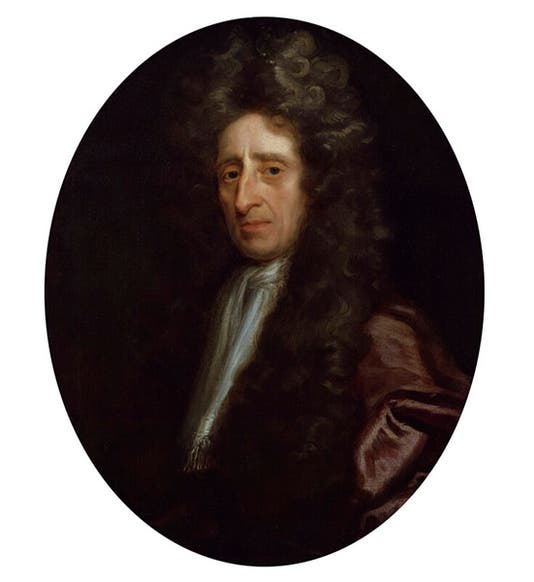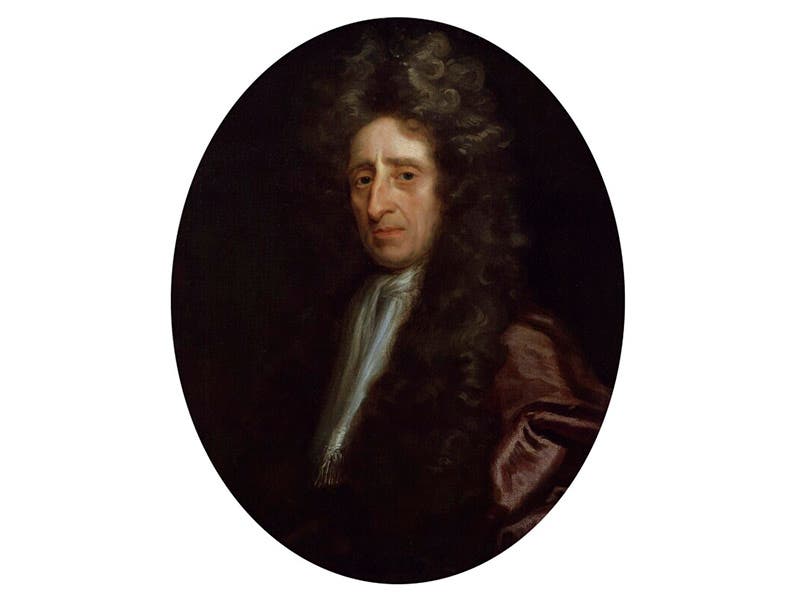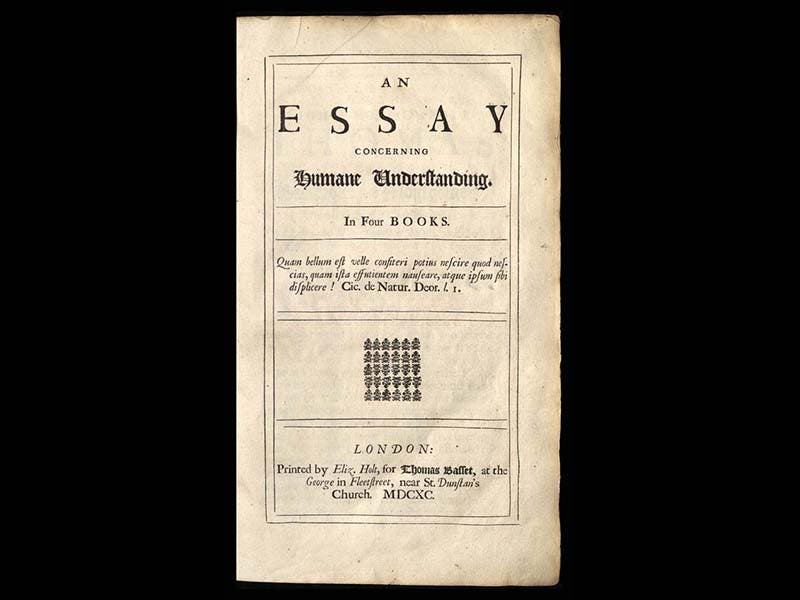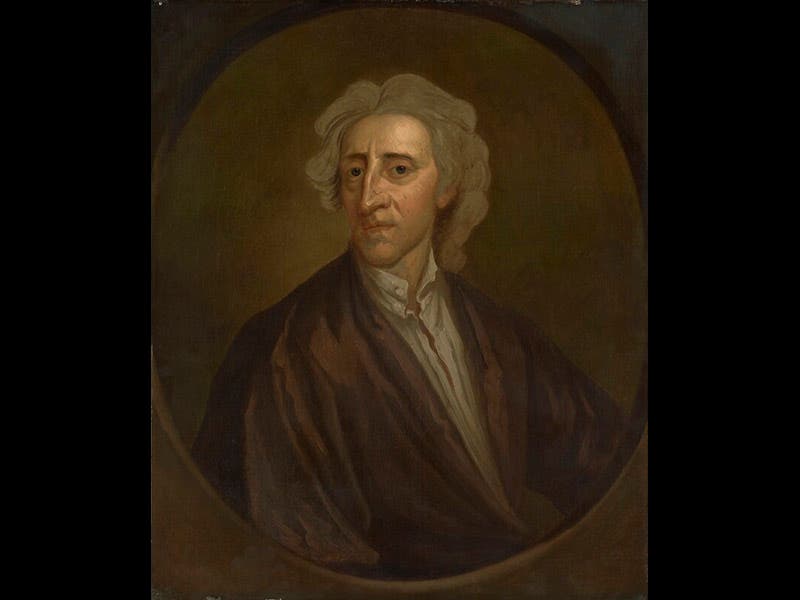Scientist of the Day - John Locke
John Locke, an English philosopher, was born Aug. 29, 1632. Locke was truly the philosopher for the Age of Newton. Although he was a religious man, religion played no role in his philosophy. Locke thought that the process of acquiring knowledge was the perception of ideas, which are generated by things, actions, and other ideas. All ideas are acquired through the senses; we are born with a clean slate--a tabula rasa--upon which we begin to accumulate ideas from the moment we are born. As for objects, we never perceive these directly, but only through ideas, so as a consequence, we can never be certain about the external world. Thus any two people will disagree about the exernal world, since their ideas of the world will differ.
What does a Lockean natural philosopher do? Since we cannot know ultimate causes, we should instead gather facts and study effects and be content with the limited truth these can provide us. Basically, we compile natural histories of the world. If we want to make hypotheses, such as that all things are made of tiny corpuscles, that is allowable, so long as we don't try to turn such hypotheses into ultimate causes, which to humans are unknowable. There was an earlier English philosopher who advocated the compilation of natural histories and warned of the danger of hypotheses--Francis Bacon. Surprisingly, Locke made little mention of Bacon in his Essay Concerning Human Understanding (1690), the work in which Locke discussed the role of the senses in the acquisition of knowledge. The connection, however, did not escape Thomas Jefferson, who elevated Locke, Bacon, and Newton into a Trinity, saying on one occasion: "I consider them as the three greatest men that have ever lived, without any exception.” Jefferson went so far as to commission portraits of the three, copied from ones in London, and installing them at Monticello. The portrait of Locke is still there, hanging in the parlour.
There are many portraits of Locke in the National Portrait Gallery in London; we show above one by Michael Dahl (1693; first image), and another, after an original by Godfrey Kneller (1704; third image). We do not own the Essay Concerning Human Understanding; the title page displayed above is from a copy at the University of Utah.
Dr. William B. Ashworth, Jr., Consultant for the History of Science, Linda Hall Library and Associate Professor, Department of History, University of Missouri-Kansas City. Comments or corrections are welcome; please direct to ashworthw@umkc.edu.






![Andromeda and Perseus, constellations figured by James Thornhill, with star positions determined by John Flamsteed, in Atlas coelestis, plate [15], 1729 (Linda Hall Library)](https://assets-us-01.kc-usercontent.com:443/9dd25524-761a-000d-d79f-86a5086d4774/1b30cfec-5be6-4297-a7fb-97255ba992e5/thornhill1.jpg?w=210&h=210&auto=format&fit=crop)


